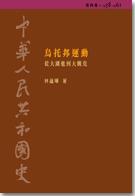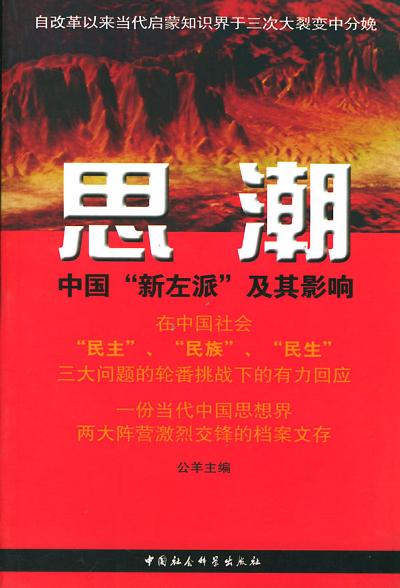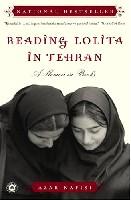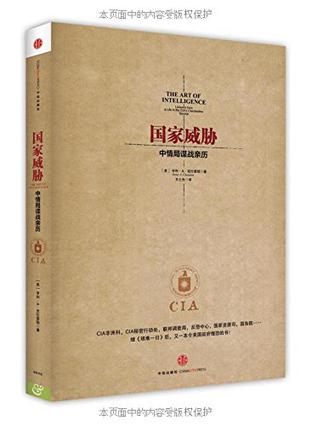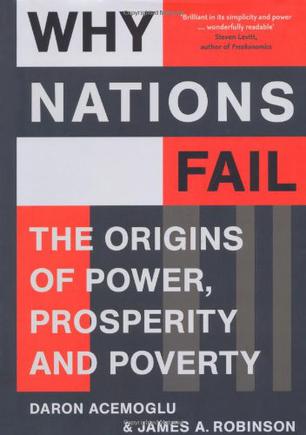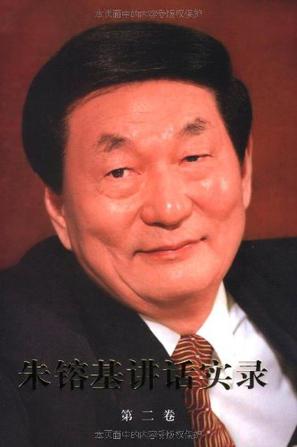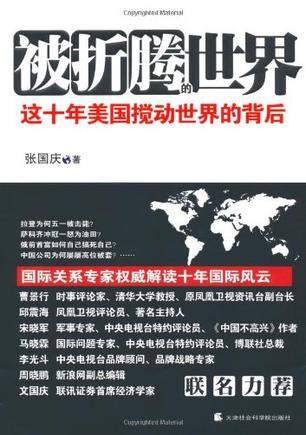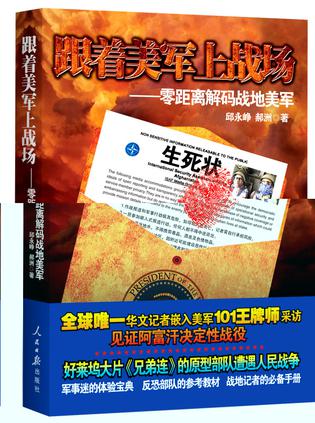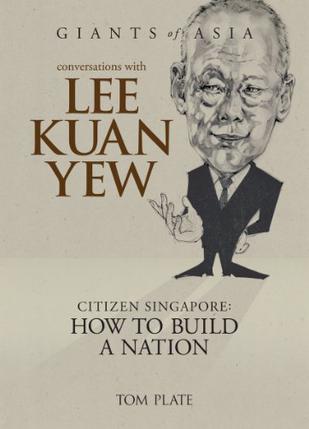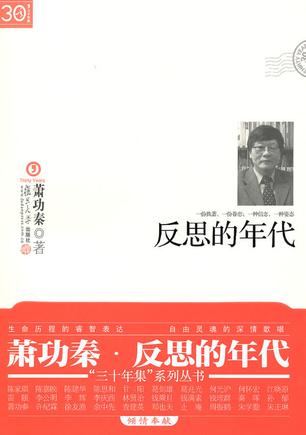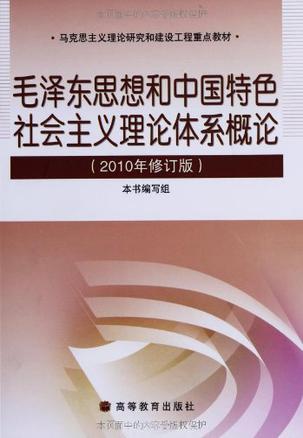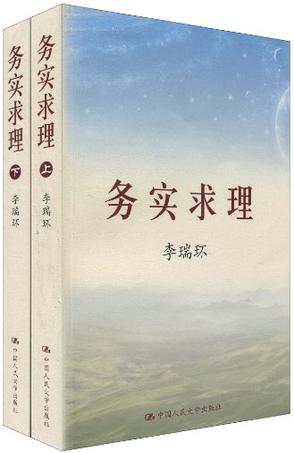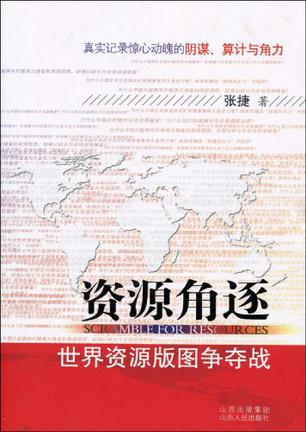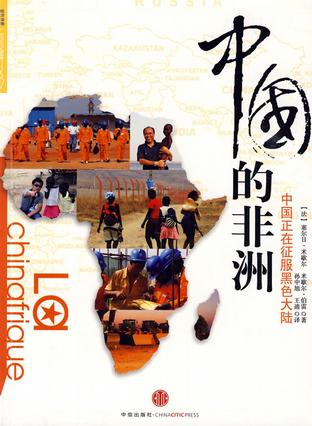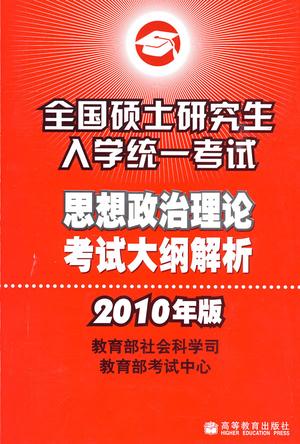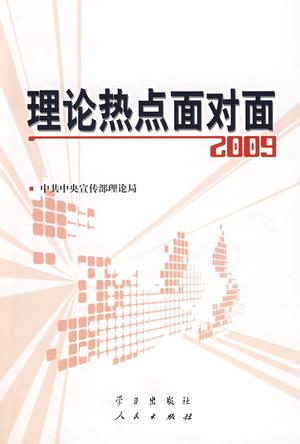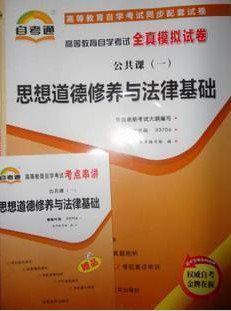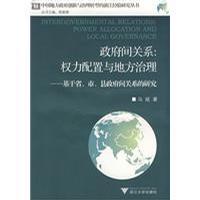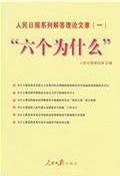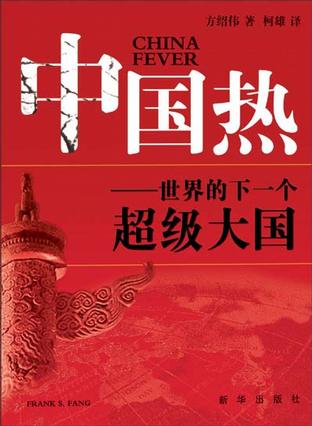欢迎来到相识电子书!
标签:政治
-
中華人民共和國史 第四卷 烏托邦運動
究竟毛澤東提出的超英趕美戰略,如何在中共高層取得統一,又何以得到基層群眾的積極回應?一再縮短的趕超時間表是如何編織出來的?在發動大躍進的過程中,有多少中共省級領導人被打成了右派分子?1958年的中共軍委擴大會議為甚麼要拿粟裕開刀?1959年在廬山罷黜彭德懷的真實原因何在?造成大饑荒的主要原因是天災,還是人禍?大饑荒的非正常死亡人數究竟有多少?為挽救危機,中共中央又採取了哪些措施?本卷依據第一手資料,作出詳盡敘述和剖析。 -
思潮
本书以中国当代启蒙知识界自改革开放发来围绕“民主”、“民族”和“民生”这三个基本问题所经历的三次大裂变为脉络和走向,介绍了二十世纪九十年代“新左派”和“新自由主义”两大阵营的思想交锋。内容基本概括了九十年代中国知识界在交锋中分化的整合的趋势。文章对国内读者所关注的当前国际热点问题作出了新颖的回答,并广泛地涉及对中国革命、毛泽东时代以及对中西方历史的基本评价。尤其有趣的是,从“老左派”的淡出到“新左 -
Reading Lolita in Tehran
Every Thursday morning for two years in the Islamic Republic of Iran, a bold and inspired teacher named Azar Nafisi secretly gathered seven of her most committed female students to read forbidden Western classics. As Islamic morality squads staged arbitrary raids in Tehran, fundamentalists seized hold of the universities, and a blind censor stifled artistic expression, the girls in Azar Nafisi’s living room risked removing their veils and immersed themselves in the worlds of Jane Austen, F. Scott Fitzgerald, Henry James, and Vladimir Nabokov. In this extraordinary memoir, their stories become intertwined with the ones they are reading. Reading Lolita in Tehran is a remarkable exploration of resilience in the face of tyranny and a celebration of the liberating power of literature. -
国家威胁
亨利•A•克伦普顿24年的卓越谍报生涯从非洲开开始。随后的整整十年,他在亚洲和欧洲的冷战战场中招募间谍,其中有恶心的罪犯,也有勇士。他去过联邦调查局,然后是中情局的反恐中心,开拓了包括无人机计划在内的许多新项目。他去过阿富汗,领导了“9•11”事件后中情局针对基地组织的战争;这是中情局有史以来最重要最成功的准军事秘密行动。后来,他回到中情局运作美国各种各样的秘密行动。 克伦普顿一生中,最受命运摆布的篇章莫过于“9•11”以后的时光了,他受命参与领导了阿富汗战役。他的战略创意和大胆领导作风在战场上和椭圆形办公室都充分表现出来,在双子塔轰然倒塌后不到三个月,美国和阿富汗盟军就击溃了基地组织和塔利班。2001年底,在阿富汗战场与塔利班激战犹酣的美国人还不足500人,但却混合了中情局与特种部队的人员。这场战役改变了美国发动战争的方式。 克伦普顿详细描述了他如何进入酒店房间安装窃听设备,如何与当地游击队合作,如何招募教授从事间谍工作等细节。他将改变人们看待中情局的方式。这是史无前例的史诗之作,是关于谍报、战争、领导力,以及间谍意义的深入浅出的课程。 -
Why Nations Fail: The Origins of Power, Prosperity and Poverty
Aprovocative new theory of political economy explaining why the world is divided into nations with wildly differing levels of prosperity Why are some nations more prosperous than others?Why Nations Fail sets out to answer this question, with a compelling and elegantly argued new theory: that it is not down to climate, geography or culture, but because of institutions. Drawing on an extraordinary range of contemporary and historical examples, from ancient Rome through the Tudors to modern-day China, leading academics Daron Acemoglu and James A. Robinson show that to invest and prosper, people need to know that if they work hard, they can make money and actually keep it - and this means sound institutions that allow virtuous circles of innovation, expansion and peace.Based on fifteen years of research, and answering the competing arguments of authors ranging from Max Weber to Jeffrey Sachs and Jared Diamond, Acemoglu and Robinson step boldly into the territory of Francis Fukuyama and Ian Morris. They blend economics, politics, history and current affairs to provide a new, powerful and persuasive way of understanding wealth and poverty. They offer a pragmatic basis for the hope that at'critical junctures'in history, those mired in poverty can be placed on the path to prosperity - with important consequences for our views on everything from the role of aid to the future of China. REVIEWS 'You will have three reasons to love this book. It's about national income differences within the modern world, perhaps the biggest problem facing the world today. It's peppered with fascinating stories that will make you a spellbinder at cocktail parties - such as why Botswana is prospering and Sierra Leone isn't . And it's a great read. Like me, you may succumb to reading it in one go, and then you may come back to it again and again.', Jared Diamond, Pulitzer-prize-winning author of bestselling books including'Guns, Germs, and Steel'and'Collapse' 'For those who think that a nation's economic fate is determined by geography or culture, Daron Acemoglu and Jim Robinson have bad news. It's man-made institutions, not the lay of the land or the faith of our forefathers, that determine whether a country is rich or poor. Synthesizing brilliantly the work of theorists from Adam Smith to Douglass North with more recent empirical research by economic historians, Acemoglu and Robinson have produced a compelling and highly readable book. And their conclusion is a cheering one: the authoritarian"extractive"institutions like the one's that drive growth in China today are bound to run out of steam. Without the inclusive institutions that first evolved in the West, sustainable growth is impossible, because only a truly free society can foster genuine innovation and the creative destruction that is its corollary.', Niall Ferguson, author of'The Ascent of Money' 'This fascinating and readable book centers on the complex joint evolution of political and economic institutions, in good directions and bad. It strikes a delicate balance between the logic of political and economic behavior and the shifts in direction created by contingent historical events, large and small at'critical junctures'. Acemoglu and Robinson provide an enormous range of historical examples to show how such shifts can tilt toward favorable institutions, progressive innovation and economic success or toward repressive institutions and eventual decay or stagnation. Somehow they can generate both excitement and reflection.', Robert Solow, Nobel Laureate in Economics 'It's the politics, stupid! That is Acemoglu and Robinson's simple yet compelling explanation for why so many countries fail to develop. From the absolutism of the Stuarts to the antebellum South, from Sierra Leone to Colombia, this magisterial work shows how powerful elites rig the rules to benefit themselves at the expense of the many. Charting a careful course between the pessimists and optimists, the authors demonstrate history and geography need not be destiny. But they also document how sensible economic ideas and policies often achieve little in the absence of fundamental political change.', Dani Rodrik, Kennedy School of Government, Harvard Universitry 'Two of the world's best and most erudite economists turn to the hardest issue of all: why are some nations poor and others rich? Written with a deep knowledge of economics and political history, this is perhaps the most powerful statement made to date that'institutions matter.'A provocative, instructive, yet thoroughly enthralling book.', Joel Mokyr, Robert H. Strotz Professor of Arts and Sciences and Professor of Economics and History, Northwestern University 'Imagine sitting around a table listening to Jared Diamond, Joseph Schumpeter, and James Madison reflect on over two thousand years of political and economic history. Imagine that they weave their ideas into a coherent theoretical framework based on limiting extraction, promoting creative destruction, and creating strong political institutions that share power and you begin to see the contribution of this brilliant and engagingly written book.', Scott E. Page, University of Michigan and Santa Fre Institute 'In this stunningly wide ranging book Acemoglu and Robinson ask a simple but vital question, why do some nations become rich and others remain poor? Their answer is also simple -- because some polities develop more inclusive political institutions. What is remarkable about the book is the crispness and clarity of the writing, the elegance of the argument, and the remarkable richness of historical detail. This book is a must read at a moment where governments right across the western world must come up with the political will to deal with a debt crisis of unusual proportions.', Steve Pincus, Bradford Durfee Professor of History and International and Area Studies, Yale University 'Acemoglu and Robinson -- two of the world's leading experts on development -- explain why it is not geography, disease, or culture which explains why some nations are rich and some poor, but rather a matter of institutions and politics. This highly accessible book provides welcome insight to specialists and general readers alike.', Francis Fukuyama 'Some time ago a little known Scottish philosopher wrote a book on what makes nations succeed and what makes them fail. The Wealth of Nations is still being read today. With the same perspicacity and with the same broad historical perspective, Daron Acemoglu and James Robinson have re-tackled this same question for our own times. Two centuries from now our great-great-...-great grandchildren will be, similarly, readingWhy Nations Fail.', George Akerlof, Nobel Laureate in Economics, 2001 'Acemoglu and Robinson have made an important contribution to the debate as to why similar-looking nations differ so greatly in their economic and political development. Through a broad multiplicity of historical examples, they show how institutional developments, sometimes based on very accidental circumstances, have had enormous consequences. The openness of a society, its willingness to permit creative destruction, and the rule of appear to be decisive for economic development.', Kenneth J. Arrow 'This not only a fascinating and interesting book: it is a really important one. The highly original research that Professors Acemoglu and Robinson have done, and continue to do, on how economic forces, politics and policy choices evolve together and constrain each other, and how institutions affect that evolution, is essential to understanding the successes and failures of societies and nations. And here, in this book, these insights come in a highly accessible, indeed riveting form. Those who pick this book up and start reading will have trouble putting it down.', Michael Spence 'Why Nations Fail is a truly awesome book. Acemoglu and Robinson tackle one of the most importantproblems in the social sciences -- a question that has bedeviled leading thinkers for centuries -- and offer an answer that is brilliant in its simplicity and power. A wonderfully readable mix of history, political science, and economics, this book will change the way we think about economic development.Why Nations Fail is a must read book.', Steven Levitt, author of Freakonomics 'Why Nations Fail is so good in so many ways that I despair of listing them all. It is an excellent book and should be purchased forthwith, so to encourage the authors to keep working.', Charles C. Mann, author of 1491 and 1493 'In this delightfully readable romp through 400 years of history, two of the giants of contemporary social science bring us an inspiring and important message: it is freedom that makes the world rich. Let tyrants everywhere tremble!', Ian Morris, Stanford University, author of Why the West Rules - For Now 'The authors convincingly show that countries escape poverty only when they have appropriate economic institutions, especially private property and competition. More originally, they argue countries are more likely to develop the right institiutions when they have an open pluralistic political system with competition for political office, a widespread electorate, and openness to new politcial -
朱镕基讲话实录(第2卷)
在历届党和国家领导人中,朱镕基素以讲真话、讲实话、讲直话、敢讲话著称,《朱镕基讲话实录》收录了朱镕基同志在担任国务院副总理、总理期间回答中外记者提问和在境外发表的部分演讲,以及在各大电台,新闻发布,各地视察工作中的讲话。《朱镕基讲话实录》分为四卷,本书为《朱镕基讲话实录(第2卷)》,收录的是1994年6月至1997年12月,朱镕基同志担任国务院副总理期间的文稿。 -
被折腾的世界
《被折腾的世界:这十年美国搅动世界的背后》主要内容简介:在这个世纪的第一个十年,从美国的“9.11”到日本的“3.11”,两大经济体所受到的打击,不仅改变全球经济走势,也改变了政治生态。自从“9.11”打开了“潘多拉的盒子”以后,既爆发了最夹生的战争(阿富汗战争),也爆发了最莫须有的战争(伊拉克战争);出现了像普京这样极富个人魅力的领导人,还活跃过小布什这样最富争议的美国总统,发生了影响全球经济的华尔街金融风暴;2011年初出现北非和中东的大变局,以及堪称“潘多拉第二”的利比亚战争;日本之难还未收尾,十年不见踪迹的本•拉登突然被击毙。过去十年主导世界格局的大事背后,有你我他需要知道的内幕、根源和规律。事实上,就算是进行个人投资和理财,如果不明了国际问题的走向和实质,也还是会被别人牵着鼻子走。然而,只要了解美国的大手,世界格局便简易清晰。 -
跟着美军上战场
《跟着美军上战场:零距离解码战地美军》简介:9月1日,驻伊拉克美军正式举行结束在伊战斗任务的仪式后,阿富汗成了美国全球反恐战争的唯一主战场。在与伊拉克之间只隔着伊朗的阿富汗,2.5万名美军、北约士兵和阿富汗国民军正摩拳擦掌,准备发动代号为“坎大哈合作”的军事行动。《环球时报》记者从9月2日起“嵌入”美军第101空中突击师作战部队,亲身见证这场决定美军在阿未来命运的重要战事。作为全球唯一获美军国防部和北约同意随军报道此次行动的华文媒体记者,在异国他乡与战争中的一方签订生死状,难免生出一种奇异的赌博感,但真正的赌博却是美国…… -
反思的年代
特立独行的思想者精神家园的守护人 当代中国知识分子的一次文化盛宴 “三十年集”系列丛书的作者是一批如今活跃在学术界和文化领域的著名学者与知识分子。他们大多出生于四十年代和五十年代,对于他们而言,过去的三十年是一段重要而又特殊的生命旅程。 1977年,中断十年的高考制度恢复,一批“知青”的命运由此而改变,并被投入到与先前的生活完全不同的时代洪流之中。在这潮头多变的三十年里,他们执著地行走在自己选定的道路上,努力保持着自己独立的性格;在汹涌而来的滚滚红尘中,也不曾失却超越性的人文关怀。为着一个信念、一份眷恋,他们不懈地寻觅着。这里的每一本书所记录的就正是他们自己三十年来的心路历程,他们的经历、感受、体悟、思索以及由此而形成的独特的精神姿态。 这是他们个人的独特道路,也是我们时代的独特风貌。 -
毛泽东思想和中国特色社会主义理论体系概论
毛泽东思想和中国特色社会主义理论体系概论,ISBN:9787040299847,作者: -
务实求理(上下)
《务实求理》选编了李瑞环同志在中央和天津工作期间的重要讲话和文稿117篇,绝大部分内容是第一次正式公开披露。其中包括“改革、发展、稳定”,“‘和’的思想”,“政协大会讲话”,“人民政协工作”,“统一战线工作”,“民族宗教工作”,“城市规划、建设和管理”,“农村问题”,“土地、水和绿化问题”,“为人民办实事”,“群众观点和群众路线”,“宣传思想工作”,“弘扬民族优秀文化”,“繁荣文艺”,“对外交往”,“学习理论、总结经验”等内容,系统而全面地总结了李瑞环同志多年从事领导工作的实践经验和思想精髓,是李瑞环同志思想的全景式展示,具有很高的理论价值和实践指导意义。 -
资源角逐
本书分析了世界各国对于资源的角逐,由于自身的利益,都不说明这样的资源竞争,西方是因为资源的掠夺殖民的需要,需要对于世界的愚民;而社会主义的劳动价值论资源的价值不计算才能够得出剥削的剩余价值理论,但是世界的资源实际上是人类的生存权,一个国家最根本的是资源版图,因为领土人口实际上也是资源的一部分。本书对于世界和中国的资源战略进行了深入的思考和分析。本人根据熵的永远增加提出资源有限,全球一体化在资源有限的情况下世界成为了一个封闭的体系,再不是经济学对于世界交流模式下某个国家的开放体系,世界的经济模型出现根本变化,对于大国会产生相对性的效用,对于中国的崛起对于世界资源再分配的格局需要重新考量。 -
中国的非洲
《中国的非洲》:从一个侧面反映改革开放30年的巨大成就 讲述投资建设非洲的种种故事和遭遇 描绘中非经济政治合作的新图景 由于中国在非洲的投资和建设,这块黑色大陆不再是一个被边缘化的大陆,它正在经历前所未有的高速经济增长,开始重新被世界所重视。 刚果建设、城市规划、住房和土地改革部部长克洛德·阿方斯·恩西卢说:“中国人真是太了不起了!他们给我们建了马桑巴体育馆、外交部大楼和电视台。现在正在建设英布鲁水电站和布拉柴维尔的市政供水系统。他们给我们建机场,铺设黑角一布拉柴维尔的高速公路。他们还给我们建住房,在河边给我们建休闲公园。在奥约、(总统的故乡),他们还建了一所综合性医院,还修了公路,建了住房。这些都是已经决定的事,协议都签了。这一切对我们来说是双赢!” -
全国硕士研究生入学统一考试思想政治理论考试大纲解析
《全国硕士研究生入学统一考试思想政治理论考试大纲解析(2010年版)》坚持从基本理论、基本观点的角度对考试大纲的内容进行阐述和讲解,以期提高考生的政治理论水平。 全国硕士研究生入学统一考试是国家选拔硕士研究生的重要途径。硕士研究生入学统一考试从教育测量学角度来说,它应是“常模参照”考试,即选拔性考试;命题工作需坚持既有利于为国家选拔高层次的专门人才,又有利于高校教学的原则,强调在考查知识的基础上重点考查考生分析问题和解决问题的能力。 为了加强对全国硕士研究生入学统一考试思想政治理论科的指导,教育部思想政治理论课教学主管部门和教育部考试中心成立了《全国硕士研究生入学统一考试思想政治理论考试大纲解析》编委会。编委会根据《全国硕士研究生入学统一考试思想政治理论考试大纲(2010年版)》,组织编写了《全国硕士研究生入学统一考试思想政治理论考试大纲解析(2010年版)》。 -
理论热点面对面2009
《理论热点面对面2009》是中央宣传部理论局在深入调研基础上,组织理论界专家学者撰写的通俗理论读物。本书对广大干部群众普遍关心的热点难点问题,进行了深入浅出的回答,观点准确、说理透彻,具有较强的针对性和说服力。本书用最新素材阐述理论问题。用身边事例说明深刻道理,图文并茂、文字生动、通俗易懂、可读性强,是广大干部群众、青年学生理论学习的重要辅助材料. -
思想道德修养与法律基础自考通全真模拟试卷课程代码
思想道德修养与法律基础(2009年修订版),ISBN:9787040267709,作者:本书编写组 -
政府间关系
优化省、市、县政府间关系必须跳出行政权力在政府层级间纵向配置的传统思维,从根本上调整权力在上下级政府间、政府与市场、政府与社会之间的配置,构建多中心治理的格局;在政府间治理结构中更多地嵌入合作、沟通和协商初制,改变命令控制的单一行政模式,实现府际治理。 -
“六个为什么”
在纪念党的十一届三中全会召开30周年理论研讨会上,中央领导同志要求紧密联系干部群众的思想实际,深入回答六个与社会主义核心价值体系建设密切相关的重大问题(即“六个为什么”)。“六个为什么”涵盖了指导思想、经济制度、政治制度、发展方向等重要方面,是关系党和国家事业发展的根本性问题。人民日报理论部围绕“六个为什么”,组织专家学者撰写系列解答理论文章,刊发后,引起热烈反响。 应广大读者要求,现将“六个为什么”系列解答理论文章汇集成册,由人民日报出版社公开出版发行。同时,精选了十余篇相关文章,作为延伸阅读,收入书中。所选文章大都发表在人民日报上,选自其他报刊的已征得作者同意。在此,谨向有关作者和媒体表示谢意。 -
中国热
在中国的和平崛起日益受到世界各国关注之时,由美籍华人方绍伟撰写的《中国热——世界的下一个超级大国》一书,由新华出版社隆重推出。 本书主要分析了中国崛起的原因、问题和乐观前景以及美国的反应、担忧和观念误区,提出中国不会选择西方式的民主,中国的复兴对美国的挑战不是经济或军事的挑战而是美国不愿面对的“国家制度模式”的挑战等颇有创见的观点。 本书作者为北京大学经济学硕士,知名经济学家,在中国多年从事经济研究工作,现任芝加哥“制度经济研究中心”主任、美国500强安泰公司医疗经济顾问、班尼迪克大学商学院“中国投资”主讲人。 序摘:世界为何如此关注“中国热” 在21世纪之初,中国的崛起成了世界各地报刊和互联网上没完没了谈论的最热门话题之一。“中国热”处处可见。越来越多的人,包括过去从未与中国有过交往的许多人,现在都想要学习中国语言,以便保持竞争力。 中国犹如一个巨大的磁场,吸引着人们的目光、公司的投资和各国的资源。在美国,IBM(国际商用机器公司)正在从中国的购进各种元件,Freeborders(福瑞博德软件开发公司)正在把它的软件解决方案销往中国,摩托罗拉把它的生产向中国转移,微软把它的研发往中国搬迁。星巴克使劲在中国搞并购,高盛向中国投资,摩根士丹利在中国挖崛产业,美林则博弈于中国证券市场。通用汽车公司把生意做进了中国,沃尔玛既在中国做生意又从中国进货。在许多商家看来,抉择是明显的:要么“到中国去”,要么破产。在这“十大家”忙碌之际,华盛顿则在辩论它的对华贸易政策,为美中贸易逆差而烦恼,向中国施加压力以促使中国货币升值和保护知识产权,并且不停地琢磨那来自中国的挑战和潜在的威胁。 2007年初,中国用一枚地基中程弹道导弹击毁了它自己的一枚气象卫星,这一动作立即被认为是使得美国的低轨道间谍卫星从理论上说是遇到了危险。这是十年前还闻所未闻的议论。美国本来是称霸于外层空间,如今却闯进来了一个中国。中国的反卫星试验使它成了第三个拥有这种能力的国家,迅速触发了西方的广泛关切和忧虑,这就又一次确凿无疑表明中国如今吸引着世界的注意力。 2007年2月27日,中国的上海证券综合指数由3049点暴跌到2771点(下跌约9%,或折合1080亿美元)。这是十年来最大的单日跌幅,立刻在世界各地引起多米诺骨牌效应。美国证券市场遇到了2001年9月11日恐怖主义袭击以来最糟的一天。道琼斯平均指数下跌了400多点,纳斯达克综合指数下跌了将近100点,标准普尔500指数下跌了50点,跌幅均在3%以上。德国的法兰克福DAX指数和法国的巴黎CAC40指数的跌幅也在3%左右。这一次“中国冲击”清楚表明了中国对世界各地的心理影响力。尽管人们对中国的看法一般说来是好的,但是对中国的经济和军事抱负,一些人仍然强烈地感到不安、误解和明显的不信任。他们怀疑中国造的食品(包括宠物食品)和轮胎等等产品是否安全,还大量召回中国造的玩具。当世界期待着2008年奥运会的时候,有些人甚至提议抵制这一奥运会以影响中国与苏丹的关系,或是影响中国在台湾问题、西藏问题、政治和宗教迫害问题以及总的人权问题上的立场。 与此同时,中国在国内和国际上涌现出越来越多的耀眼明星,例如篮球明星姚明,110米跨栏超人刘翔,奥林匹克跳水冠军郭晶晶,电影明星章子怡,个人财富甚至超过了奥普拉·温弗里的最富女商人张茵,在福布斯400中国富豪排行榜上名列榜首的黄光裕,以及在中国互联网商贸市场上成功抗击eBay(易趣)的阿里巴巴网站创办人马云。 当标明“中国制造”、“中国设计”和“中国印刷”的产品销到世界每一个角落的时候,中国一些公司也在国际商界小试身手:联想公司完成了一次“蛇吞象”的故事,由Legend变成了Lenovo;华为公司正在大胆地改变着全球电信市场的比赛场地。中国海洋石油公司这家中国最大的石油公司曾采取一个引起高度争议的举动,想收购美国的UNOCAL(加州联合石油公司),它还与中国另几家石油公司一样并购世界各地的能源资产。 与此同时,中国的软件领头企业东软公司(Neusoft)和温州的几家公司正在上演中国版的软件外包和离岸外包业务。电器巨人海尔、汽车零部件制造商万向、机械制造商三一、海运巨头中国国际海运集装箱公司(CIMC)和工具制造商创科(Techtronic)都在慢慢地但却稳步地踏进美国的市场。随着大型SUVs(运动型多功能汽车)逐渐失去美国驾车人的宠爱,中国的汽车制造公司吉利、奇瑞、长丰和中兴已经被看作是美国汽车市场的下一波入侵者。 在新的千年,中国的语言和论正在走向全球。孔子学院出现于中国以外的一些地方。学习中文成为新世纪一大时髦。中国中央电视台(CCTV)、凤凰卫视、东方卫视和湖南卫视将中国文化播向全球各地。 随着北京举办2008年夏季奥运会,中国正跃上世界舞台。中国人将利用这一绝妙机会向世界展示他们的经济繁荣和文化辉煌。中国的惊人发展是让亿万农民脱离了贫困。国内生产总值的连续翻番正在让数以百万计的城市居民进入新的中产阶级。成千成万的新富起来的中国人现在不只是在国内旅游,而且还出国到世界各地旅游。在香港、甚至在1997年正式由英国移交给中国以后,由内地去访问的人还曾被蔑视为乡巴佬穷亲戚。现在,从内地到香港旅游的人阔绰大方,购买力丝毫不亚于先前来到香港的欧美、日本有钱人,让接待他们的许多商店忙得不亦乐乎。中国拥有世界上人数最多的消费群体(13亿人)、世界上人数最多的手机用户(4.61亿人)、世界上人数之多居第二位的网民(1.37亿人)以及世界上最庞大的电视观众(3.5亿以上的家庭),因而构成世界新的经济秩序的一个中心。 尽管如此,中国也不是神。财富滋生贪婪。繁荣引起违法行为。中国现在出现的严重问题不只是贪污腐败、国有企业效率低下、分配导致过热、盗版和侵犯知识产权、医疗保健危机和社会风气低下,而且还有严重的犯罪和社会不安宁、失业、贫富差距增大、环境恶化以及易受国际经济震荡冲击。在某些中国问题观察家看来,这情况真是神秘莫测,不可理解:在一种根深蒂固的和腐败的政治体制之上竟造就出全球规模的商界淘金热;与僵硬的集权制度相伴而来的竟是空前的巨大经济繁荣;麻烦成堆的公民教养却在强调开阔的抱负;无法矫正的非民主正统观念却肩负着丰富的文化传统。这种种奇形怪状的组合看来都存在于中国,简直无法解释。 这不是资本主义,而是“有中国特色的社会主义”。只要你不推翻政府,你想干什么都行。有一条线是不能逾越的,可是这一条线并不清晰。难解的“中国谜”的焦点就在于:在经济发展带来重重社会危机和政治危机的情况下,中国政府为什么不倒?为什么经济自由化丝毫没有显示出政治民主化的迹象?简而言之,如果说中国的情况真是如此糟糕,那么中国热为什么仍持久不衰? 不论你干的是哪一行,中国的事态都会对你有影响。这影响也许不是就在明天,但总会很快来到。有必要了解在中国起作用的是哪些历史进程以及它们是怎样起作用于中国的现状。 有些人希望看到中国发生西方式的民主变革,他们不但要理解中国政治文化的具体机制和民主逻辑,而且要回头看看西方民主制度中的“公共选择”和民主制“道义优越性”的来龙去脉。有些人预言中国行将崩溃,他们该了解一下中国的“改朝换代的轮回”是如何适应于现时的体制。有些人对“中国威胁”感到惊恐,他们需要明确一下中国作为防御型“疆界扩张者”所起的作用。有些人对中国的经济繁荣感到迷惑不解,他们需要扎扎实实地了解一下中国的经济发展情形,而且探讨一下这一点为什么其实是一个长期的机遇。最后,有些人将中国视为一个新兴的(或复兴的)帝国,对于他们而言,一个尚有待于明确和认识的紧迫问题就在于,美国的世纪及其以后的时代会面临何种独特的挑战。
热门标签
下载排行榜
- 1 梦的解析:最佳译本
- 2 李鸿章全传
- 3 淡定的智慧
- 4 心理操控术
- 5 哈佛口才课
- 6 俗世奇人
- 7 日瓦戈医生
- 8 笑死你的逻辑学
- 9 历史老师没教过的历史
- 10 1分钟和陌生人成为朋友

